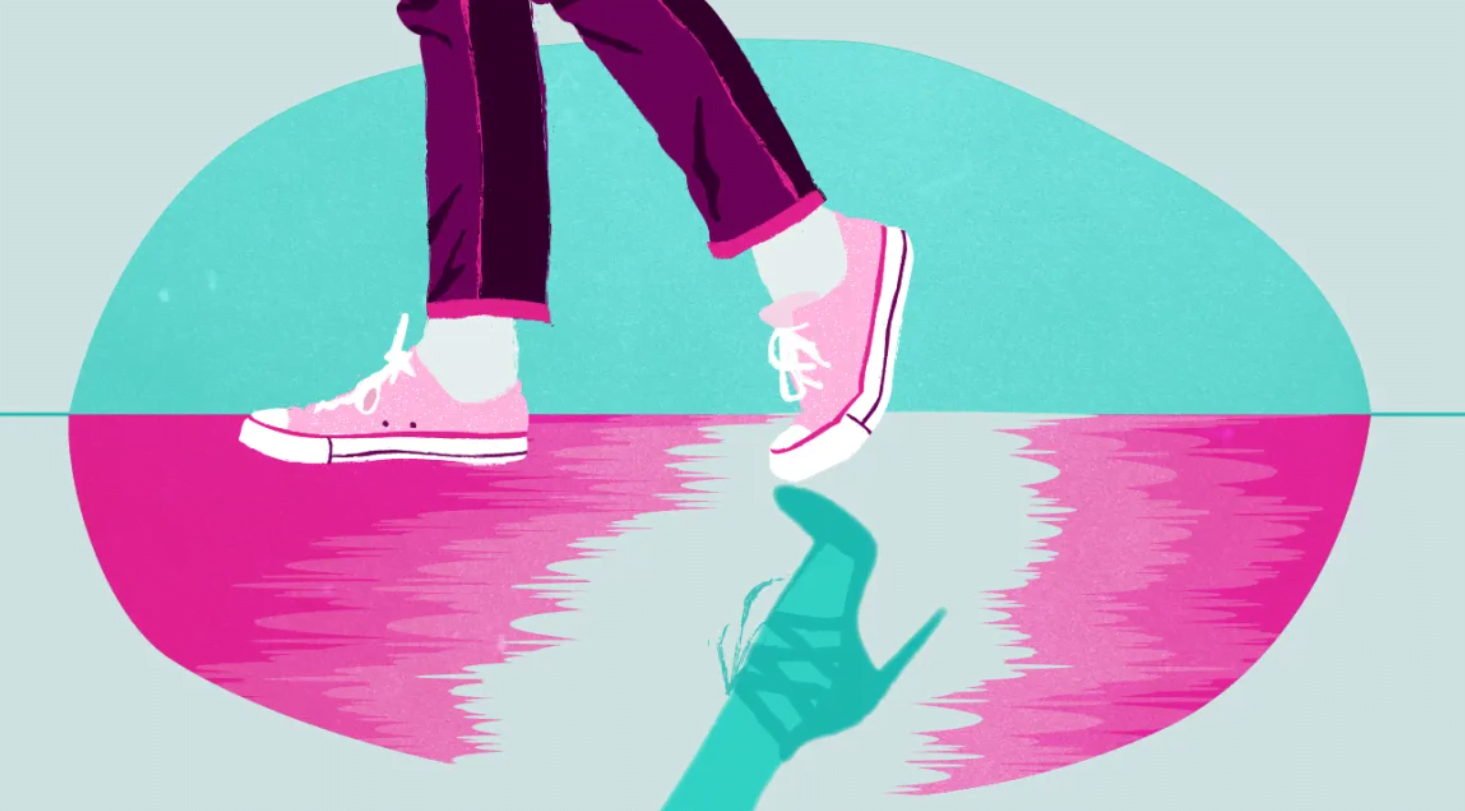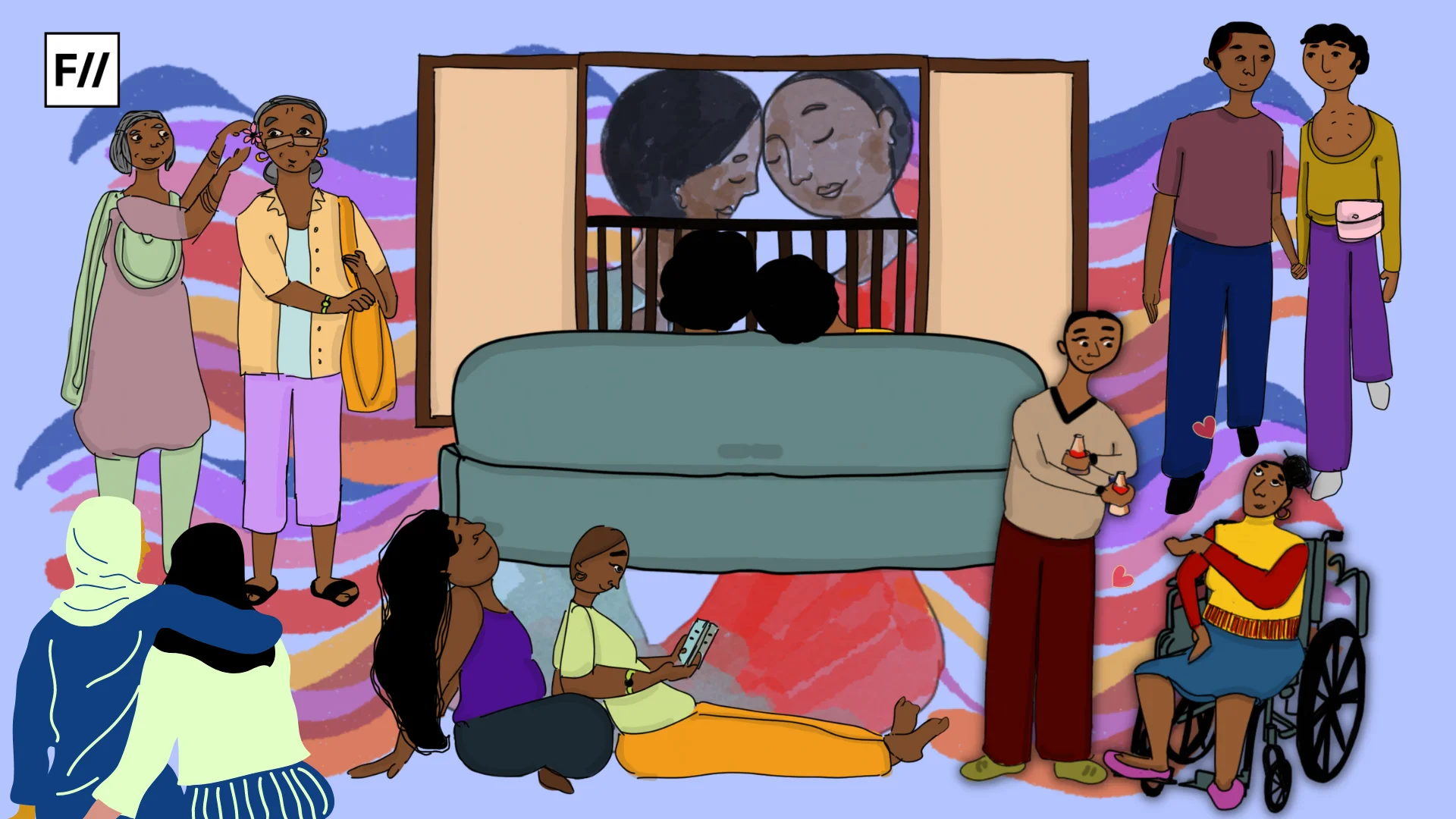Disha*, a senior journalist based out of Bengaluru, starts her day at 7:30 in the morning. However, due to her severe insomnia, she is only able to get two to three hours of sleep during the night.
‘I have daily meetings at 10 in the morning but I only go to bed by 2 or 3 a.m. the previous night. I toss and turn for the next few hours. If someone were to ask me when I actually fall asleep, it would be around 5 a.m. I have severe sleep issues which affect my day-to-day functioning and I’m not as alert as I used to be. After lunchtime, I feel exhausted and can’t keep my eyes open,’ she tells FII. In addition to insomnia, she has been diagnosed with anxiety and burnout as well.
This experience shared by Disha is just an example of the kind of difficulties women might face while living with a chronic illness. Often invisible to the rest of the world, chronic conditions can make everyday life extremely laborious.
Dealing with similar constraints is Siya*, a young professional from Telangana, currently pursuing her Master’s degree in Chicago, United States of America. ‘Every morning when people usually wake up, brush their teeth and rush to college, it takes me at least two hours to get ready because I’m in insufferable pain. I’m always trying to stick to the routine that my doctor has prescribed – eat a certain way, sit a certain way while eating, and do some pain exercises, so that I don’t collapse during the day. I have gotten used to living with it but it is never not hard,’ she remarked.
A chronic illness is any long-term health condition, physical or mental, that might not have a cure. It often requires some form of ongoing medical or psychological care. The symptoms can range from mild to severely debilitating. Some people might experience ‘flares‘ or a period when their symptoms peak, followed by remission periods. Others might live with constant, ongoing symptoms.
How is chronic illness linked to productivity and self-worth?
For women living with chronic illness, energy levels are limited and can fluctuate on an everyday basis. And so, adhering to the patriarchal notions of productivity is often difficult for them. On certain days they may be able to meet their work or study obligations, whereas on other days they can barely make it out of bed.
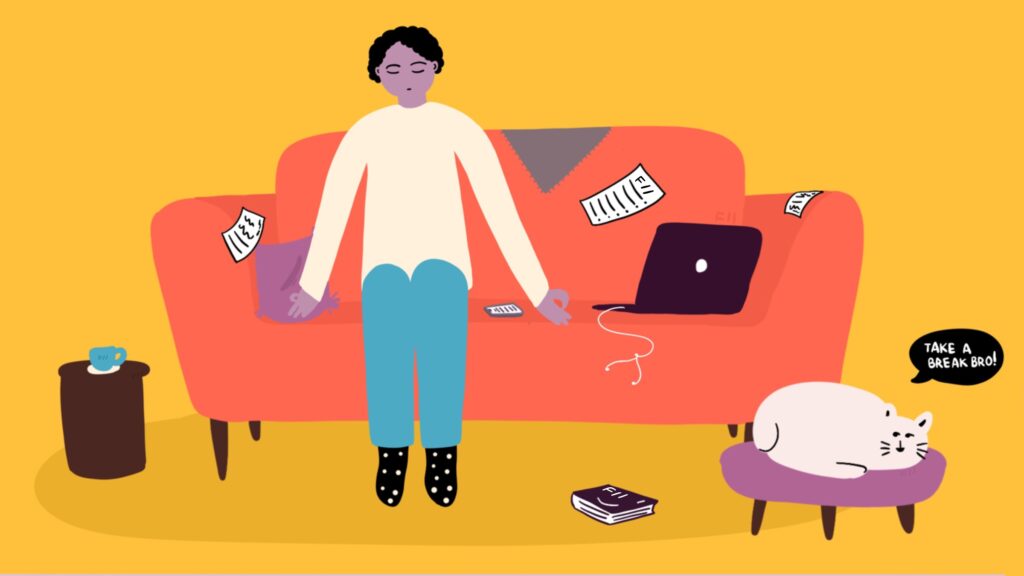
This nagging fear of not doing enough often grips Yati*, a postgraduate student in New Delhi, who has been diagnosed with depression and anxiety disorder. ‘It (chronic illness) makes me feel that I’m falling behind, as I see others around me functioning well. I feel very useless and incapable of doing a lot of things that people my age are able to do,’ she revealed.
Chronic conditions not just impact overall productivity levels, but also women’s sense of self-worth.
In many ways, neoliberal capitalism constantly bases a person’s worth on their work output. Hence, chronically ill women who cannot ‘hustle‘ or work ‘optimally‘ on all days, are often doubted. Their commitment to their work is questioned and the severity of their ailment is downplayed.
Due to the premium placed on constant productivity, it becomes a never-ending struggle for them to negotiate with the limitations of their bodies while also doing the emotional labour of educating other people about their condition.
Also juggling these challenges is Ananya, a media professional from Kolkata who lives with congenital glaucoma. She has experienced substantial loss of vision due to her condition. When asked if her chronic disability impacts her self-worth at times, she disclosed that her illness does bring up feelings of inadequacy for her.
‘I have a constant feeling that I am not as good as my peers, in the sense that I can’t be as productive or as capable as them. From work output to driving a car – I feel like I’m never going to be as able as those around me who don’t have this condition,’ she added.
New Delhi-based psychologist Nishtha Moudgil agreed that the diagnosis of a chronic condition is an isolating experience and can deeply affect women’s self-worth.
‘Living with a chronic illness can bring up mixed emotions that are hard to navigate. These emotional challenges, like heightened anxiety and stress, are further exacerbated by societal expectations within patriarchal structures, which often impose additional responsibilities on women. They contribute to feelings of helplessness and inadequacy, which can shatter these women’s confidence,’ Moudgil tells FII.
It is also important to keep in mind that disability is a spectrum and that some disabilities might be more visible than others. The invisibility of chronic disease often denies social legitimacy to these women’s experiences.
Uncertainty and the patriarchy inform chronically ill women’s experiences
A big part of living with chronic illness is living with the unpredictability that it brings. ‘I think I live with the fear that my symptoms could flare up any day. I’m grateful for the days it does not happen, and I keep trying to push past the days that it does happen. Every day has to be very calculated,’ says Lala*, a law student and former media professional based in Mumbai. She has been diagnosed with Crohn’s disease.
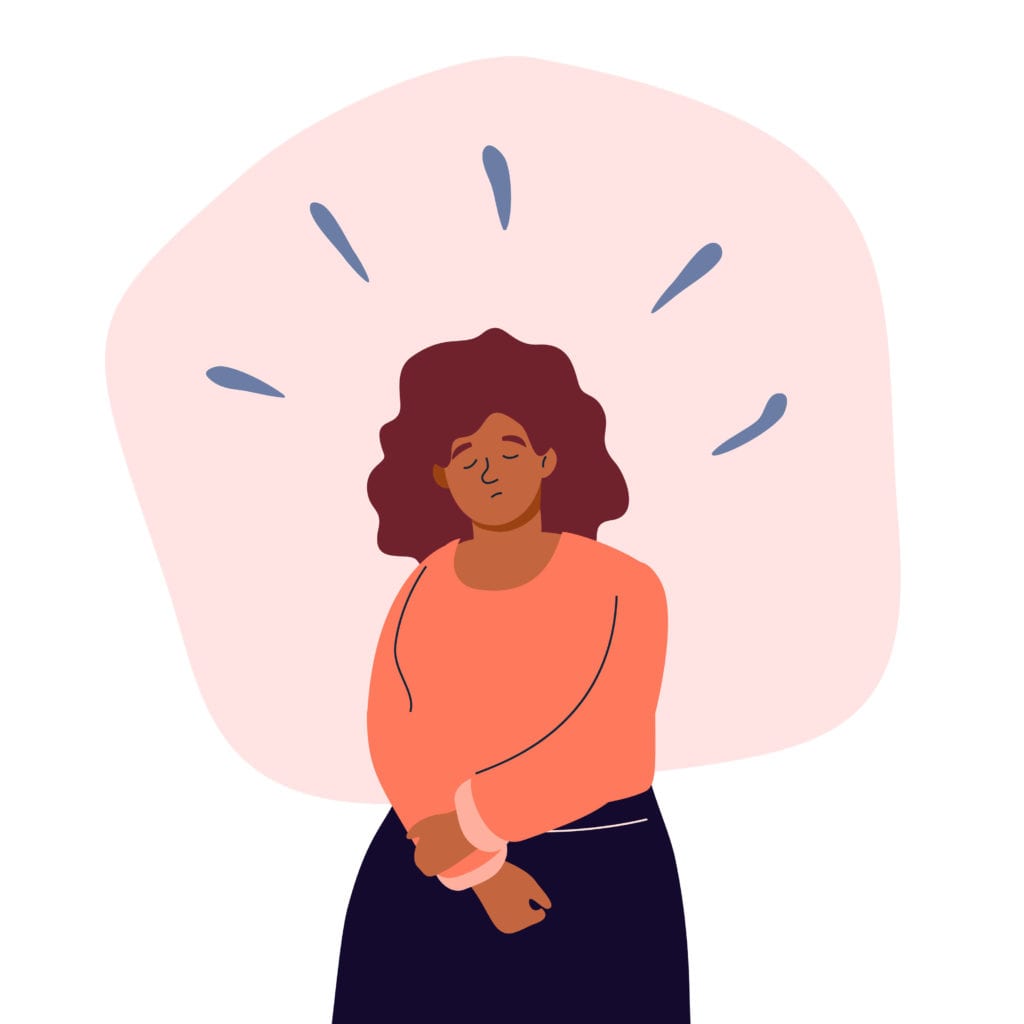
The condition affects her gastrointestinal system, which leads to weakened immunity and symptoms such as a frequently upset stomach, nausea, weakness, fainting, and abdominal pain. These frequent flare-ups also make the one-and-a-half-hour commute to her college especially hard. ‘I don’t know how to explain to people that I am not visibly sick but my insides are not functioning properly,’ she added.
Another challenge that follows the onset of chronic illness is the grief that comes along with it – the grief of losing a previous version of oneself, the grief of managing one’s expectations as per the body’s ever-changing requirements, and the grief of being stuck in time while the rest of the world seems to go on unperturbed.
Another challenge that follows the onset of chronic illness is the grief that comes along with it – the grief of losing a previous version of oneself, the grief of managing one’s expectations as per the body’s ever-changing requirements, and the grief of being stuck in time while the rest of the world seems to go on unperturbed. It is a biological constraint that interacts with peoples’ career paths by changing their abilities, priorities, and long-term goals.
Lala told us that while she is currently looking for a job, she is searching for something that is either in hybrid mode or does not require her to be in the office at all. ‘Work opportunities have not been very accessible, I have had to reject some opportunities because they were demanding a lot from me physically and emotionally, and when I get sick I can barely function. But just because I have an illness which is chronic does not mean that I do not want to work at all,’ she shared.
Ananya spoke to us about bodily limitations that can get frustrating – her glaucoma substantially limits how much work she can get done in the day. ‘Being on the computer is not good for my eyes because it gives me intense headaches and eye aches. I have to take very frequent breaks, like a five-minute break every ten minutes. If I didn’t have this condition then I’d be able to finish my work much earlier and concentrate on writing my articles,’ she mentioned.
The patriarchy perceives women as nurturers which can put added pressure on them to have it all together. Hence opening up, taking space and seeking medical care for their illness can evoke feelings of shame and guilt in women, as expressed by several respondents. The challenge of balancing professional responsibilities can further compound this.
‘Even if they think of sharing their experiences in the workplace, they might encounter gaslighting from colleagues, invalidating their lived experiences, particularly when their illness is not very apparent. It’s crucial to note how women are still subtly labelled ‘hysterical,’ further stigmatising their genuine health conditions,’ said Moudgil.
There is a body of research that shows how women’s pain is constantly invisibilized and not taken seriously.
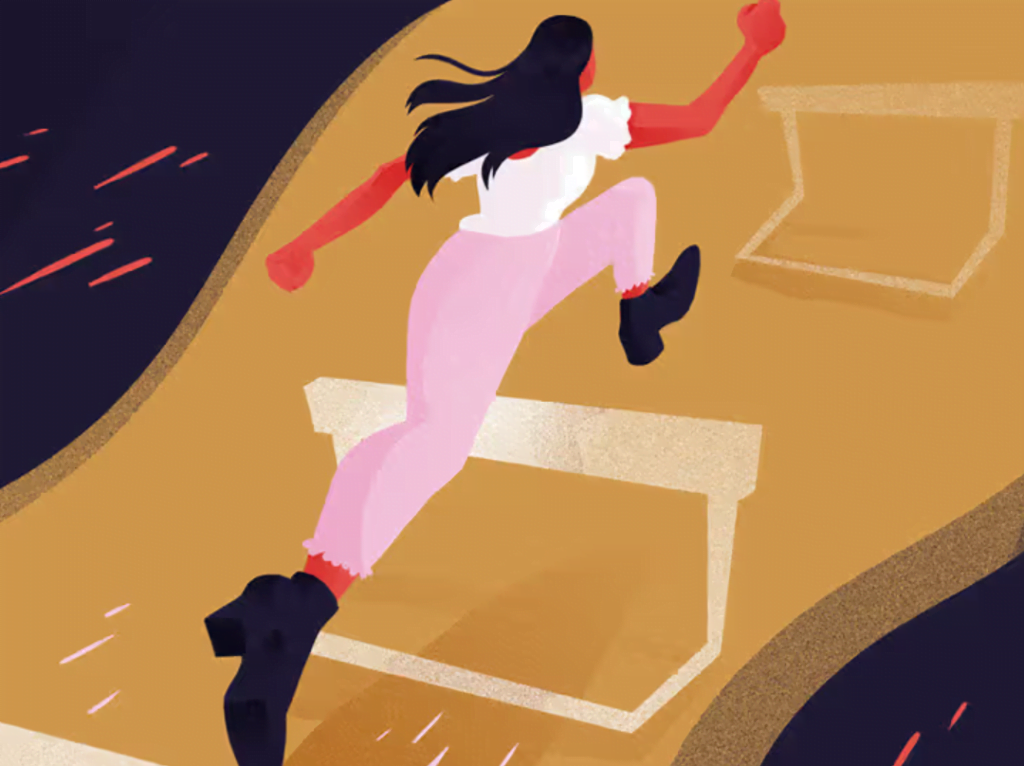
For instance, one study found that women are seven times more likely than men to be misdiagnosed and discharged in the middle of having a heart attack. Another study showed that women who had undergone coronary bypass surgery were only half as likely to be prescribed painkillers, as compared to men who had undergone the same procedure.
In recent years, multiple news reports have detailed horrific accounts of medical practitioners completely writing off women’s pain during intrauterine device (IUD) insertion, and continuing the procedure without any anaesthetic.
This institutional denial of women’s pain and illness makes it harder for them to speak up about it. Women’s feelings of isolation might have devastating effects on their physical and mental health and will further perpetuate a cycle of inaccessibility.
Structural rehaul necessary to make it easier for chronically ill women
New Delhi-based disability activist Abha Khetarpal tells FII that irrespective of disability, women need much more adaptable work schedules due to their menstrual cycles or while they are breastfeeding. Apart from that, reasonable accommodations should be made for women with disabilities which also includes women with chronic illness.
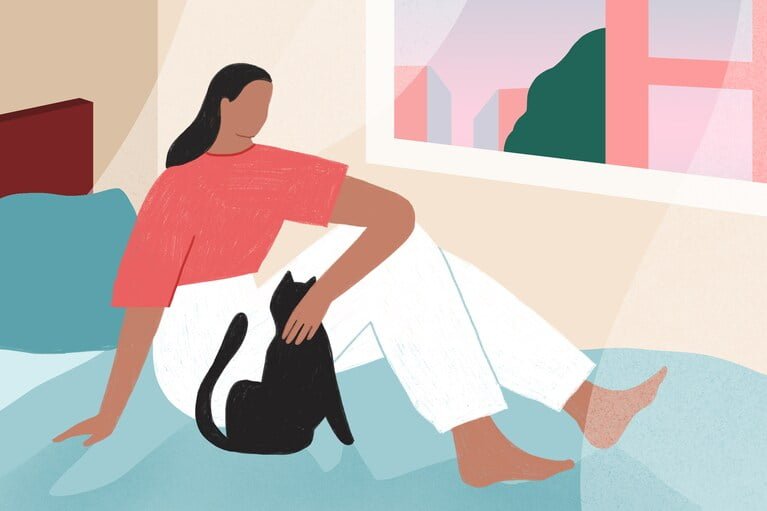
‘We need flexible schedules or work from home, regular breaks, accessible washrooms, and an inclusive workspace. Coworkers also need to be sensitised about the various types of disabilities,’ she adds.
Some of the respondents mentioned that at a personal level, their managers or professors are sympathetic towards their condition and can make certain exemptions for them. But their hands are tied when it comes to institutional-level policies that cannot be overridden. This highlights the importance of having a set of codified organisational guidelines in place for people with chronic illnesses.
Disha mentioned that while her workplace does have provisions for an occasional mental health day off, it could be made more inclusive by offering employees financial support to take care of their chronic illness expenses. For chronically ill women in educational institutions, Siya told us that flexible class timings, the ability to attend lectures from home, and a no-explanation deadline waiver for a few assignments every semester would be helpful.
‘Maybe the university can be more flexible keeping in mind that there are students with mental illnesses also studying in the campus. By no means does their illness define their capability, they just need less restrictive measures and more time to produce work,’ remarked Yati.
Moudgil tells FII that women with chronic conditions can benefit from setting realistic goals in the workplace by establishing clear boundaries.
‘Despite capitalism valuing productivity over well-being, individuals with chronic illnesses often find that lessening their workload can lead to improved outcomes. It’s important to communicate with employers regarding their condition and advocating for accommodations can enhance productivity and motivation,’ she concluded.
*names have been changed to protect privacy.
About the author(s)
Divyani is a media and research professional with a background in critical cultural theory. Her core interest areas are digital cultures, sexuality, and mental health. She loves annoying her cat and a good cup of coffee.
